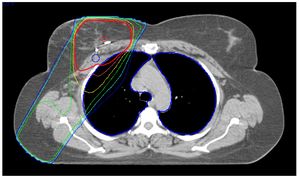More than 700 people have been killed and 2,800 injured within just five days as fighting escalates between the M23 rebel coalition and the Congolese government, according to reports from UN Secretary-General spokesman Stephane Dujarric.
Between January 26 and January 30, urgent assessments were conducted with the World Health Organization and local officials, reflecting the severity of the humanitarian crisis taking shape around the eastern Democratic Republic of Congo (DRC). Dujarric highlighted the expected rise of these figures as more information becomes available, expressing grave concerns over the humanitarian organizations battling to assess the situation amid rampant looting of aid warehouses.
Goma, the capital of the North Kivu province and the largest city in eastern DRC, has reportedly fallen under the control of the M23 group, with the rebels declaring their advances to the media. The Congolese government, which accuses neighboring Rwanda of supporting the M23, has not officially confirmed the capture but acknowledged the siege of the city.
President Felix Tshisekedi of DRC has promised a “vigorous and coordinated response” to the M23 threats, as the situation remains tense with sporadic gunfire reported within the city. Jean-Pierre Lacroix, Under-Secretary-General for Peace Operations, remarked on the vast movement of the rebels, stating they are now about 60 kilometers north of Bukavu, another major urban center.
Experts assert the chaos from the violence threatens Goma’s civilians, who face shortages of basic goods, especially water. According to Dujarric, "Access to safe drinking water has been cut off, forcing people to use untreated water from Lake Kivu with all the risks this entails.” The potential for widespread waterborne disease outbreaks looms large without urgent action.
The M23 group is reported to have recently captured most of Goma, raising alarms for many local observers as humanitarian operations grind to a halt due to insecurity. Rose Tchwenko, country director for Mercy Corps, highlighted the diabolical conditions faced by those affected, emphasizing, “The escalation of violence toward Bukavu raises fears of even greater displacement, leaving entire communities stranded without support.”
On the geopolitical front, international actions are beginning to take shape. A Southern African regional bloc decided to keep its peacekeeping force deployed within the DRC throughout 2023, echoing calls from Zimbabwean President Emmerson Mnangagwa for urgent and decisive measures. Meanwhile, at the United Nations, France presented a draft resolution advocating for a ceasefire, recognizing the growing urgency of the DRC situation.
Observations suggest M23 is not alone; it is strategically supported by approximately 4,000 Rwandan troops, surpassing their previous mobilizations during earlier conflicts. This backing is notable as many analysts cite Rwanda as having vested interests, with tensions over ignoring past peace agreements between both countries, according to Murithi Mutiga, Africa program director at the Crisis Group.
Human rights are severely threatened amid these developments. Reports have emerged detailing executions conducted by the M23 group during military confrontations. Jeremy Laurence from the U.N. human rights office noted bomb strikes on camps for internally displaced persons caused casualties and documented numerous human rights violations, including forced conscription and occupation of schools and health facilities.
The DRC military has also faced allegations of egregious actions including incidents of sexual violence committed by its personnel, with the conflict claiming victims from across social strata.
Despite the DRC military’s recent military operations, certain areas remain at risk. An attack by M23 rebels was repelled but reflects the continuous, turbulent dynamics shaping the conflict. Local populations express their apprehensions, with many young citizens volunteering for military training following Tshisekedi's appeal for mass mobilization.
With Goma’s situation characterized by occasional shootings combined with returning order, U.N. peacekeepers face challenges from unexploded ordnance, creating severe obstructions for their operations. Meanwhile, the capture of Goma by M23 reverberates through the humanitarian corridors, crippling aid logistics pivotal for millions of displaced individuals.
Underlying all these tensions is the fragility of peace processes, as talks for resolution need to re-ignite urgently to avert devastating scenarios. Amid the turmoil, the voice of DRC citizens rings loud for stability and peace—both of which stay precariously out of reach.



